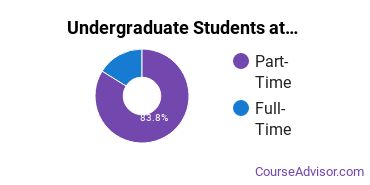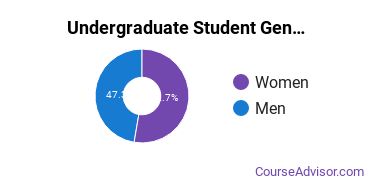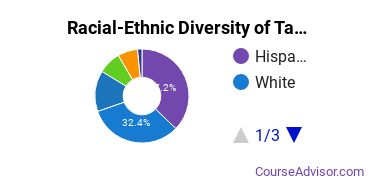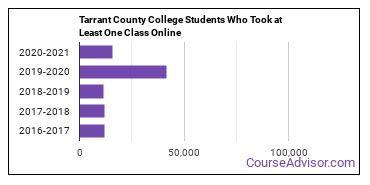Tarrant County College District Overview
Tarrant County College District is a public institution located in Fort Worth, Texas. The location of the school is great for students who enjoy the amenities of city life.
What Is Tarrant County College District Known For?
- The associate's degree is the highest award offered at Tarrant County College.
- For the <nil> academic year, 37% of the faculty were full-time.
- After graduation, Tarrant County College bachelor's degree recipients go on to jobs where they make $41,667 a year. That's about 2% more than their peers at other schools.
Featured schools near , edit
Where Is Tarrant County College District?

Contact details for Tarrant County College are given below.
| Contact Details | |
|---|---|
| Address: | 300 Trinity Campus Circle, Fort Worth, TX 76102 |
| Phone: | 817-515-8223 |
| Website: | www.tccd.edu |
How Do I Get Into Tarrant County College?
You can apply to Tarrant County College online at: www.tccd.edu/admission/how-to-apply/
Can I Afford Tarrant County College District?
Student Loan Debt
It's not uncommon for college students to take out loans to pay for school. In fact, almost 66% of students nationwide depend at least partially on loans. At Tarrant County College, approximately 6% of students took out student loans averaging $5,476 a year. That adds up to $21,904 over four years for those students.
The student loan default rate at Tarrant County College is 5.1%. This is significantly lower than the national default rate of 10.1%, which is a good sign that you'll be able to pay back your student loans.
Tarrant County College District Undergraduate Student Diversity

Gender Diversity
Of the 5,857 full-time undergraduates at Tarrant County College, 47% are male and 53% are female.

Racial-Ethnic Diversity
The racial-ethnic breakdown of Tarrant County College District students is as follows.

| Race/Ethnicity | Number of Grads |
|---|---|
| Asian | 401 |
| Black or African American | 824 |
| Hispanic or Latino | 2,179 |
| White | 1,900 |
| International Students | 92 |
| Other Races/Ethnicities | 461 |
Over 68 countries are represented at Tarrant County College. The most popular countries sending students to the school are Vietnam, Nepal, and India.
Online Learning at Tarrant County College District
The following chart shows how the online learning population at Tarrant County College has changed over the last few years.

Online Growth Rankings of Tarrant County College
The average growth rate over the last four years of online students at Tarrant County College District was 144.5%. This is the #346 largest growth rate of all schools that are mostly online. This refers to all students at Tarrant County College regardless of major.
When we speak of partially online, we are referring to schools whose online population is less than 50% of its total student body. Mostly online refers to those with online populations greater than or equal to 50%.
References
*The racial-ethnic minorities count is calculated by taking the total number of students and subtracting white students, international students, and students whose race/ethnicity was unknown. This number is then divided by the total number of students at the school to obtain the racial-ethnic minorities percentage.
More about our data sources and methodologies.
Featured Schools
 Request Info
Request Info
|
Southern New Hampshire University You have goals. Southern New Hampshire University can help you get there. Whether you need a bachelor's degree to get into a career or want a master's degree to move up in your current career, SNHU has an online program for you. Find your degree from over 200 online programs. Learn More > |
